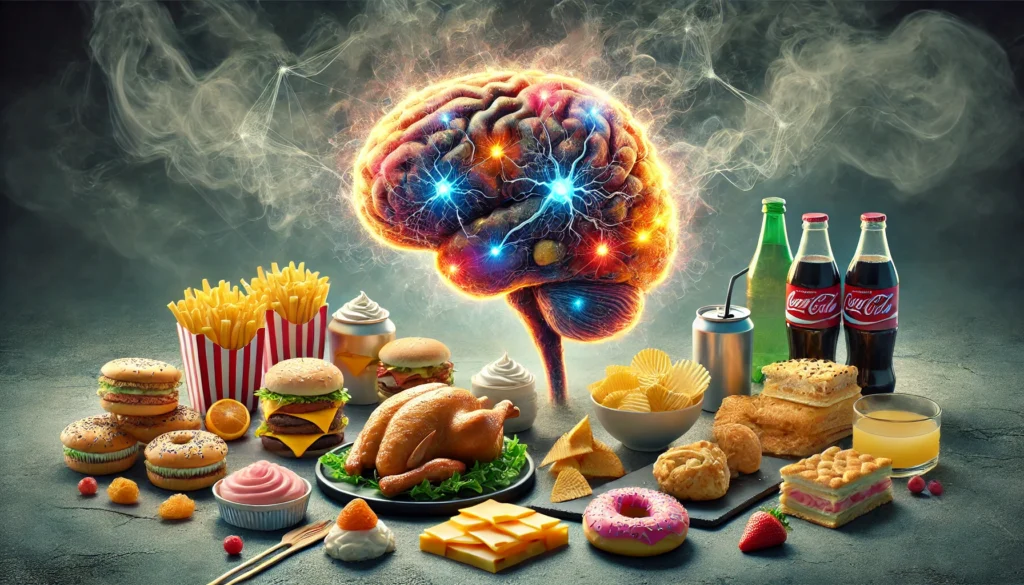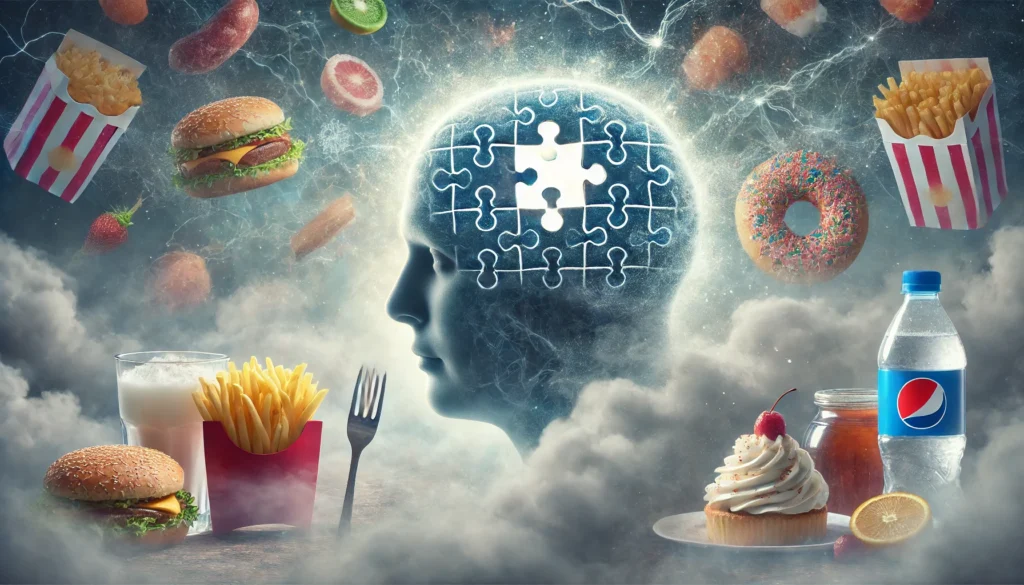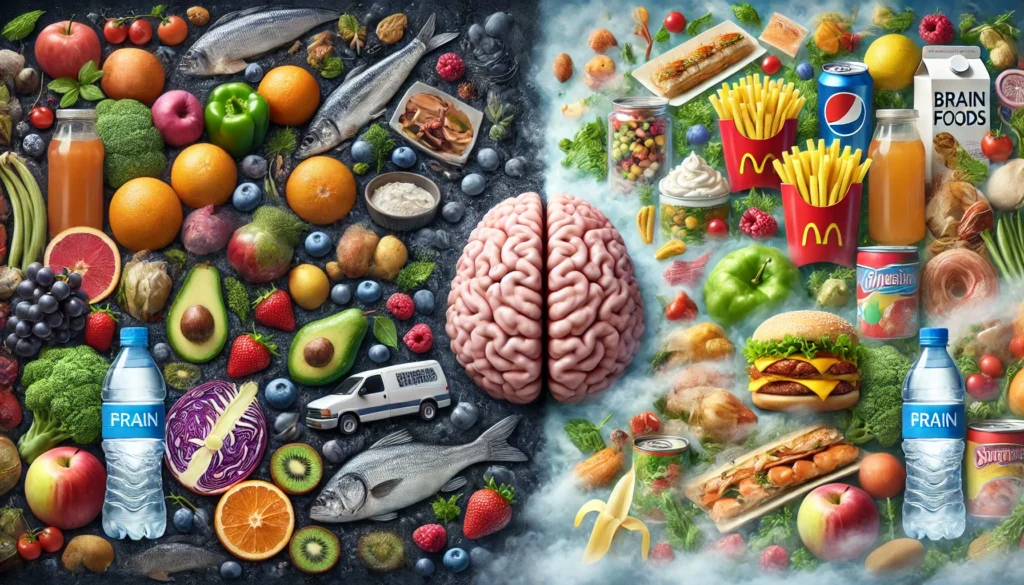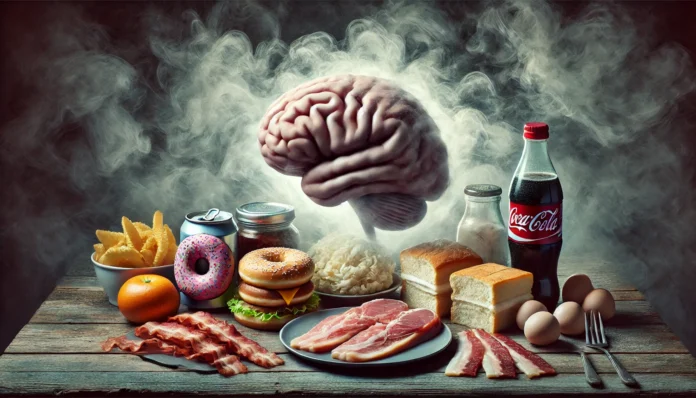In an age when cognitive health is increasingly prioritized as a cornerstone of longevity and vitality, understanding the dietary factors that can impair memory is no longer optional—it is essential. While much attention is given to foods that support brain health, such as leafy greens, berries, and omega-3-rich fish, the inverse conversation is often left in the shadows. What foods negatively impact focus, cloud our thinking, and perhaps even contribute to long-term cognitive decline? As emerging science continues to shed light on the nutritional influences behind cognitive function, the spotlight turns toward a crucial inquiry: what are the 5 worst foods for memory? This article unpacks that question with scientific depth, exploring how certain dietary habits may fuel brain fog, accelerate memory loss, and increase the risk of neurodegenerative disorders like Alzheimer’s disease.
Across the global scientific community, research consistently points to a strong connection between nutrition and neurological function. Diets high in ultra-processed foods, trans fats, and excessive sugars have been associated with poorer memory performance, mood disorders, and structural changes in the brain itself. These foods not only contribute to metabolic dysregulation but also promote inflammation, oxidative stress, and disruptions in the gut-brain axis—all of which play key roles in cognitive aging. This article delves deeply into these mechanisms while examining the five most concerning dietary culprits, often referred to in expert circles as foods that cause memory loss, foods that cause brain fog, or simply foods bad for brain health.
The cost of dietary negligence is high, and while memory loss is a complex, multifactorial issue, certain foods emerge repeatedly as offenders in both clinical and epidemiological research. From sugary beverages to refined carbs, from processed meats to artificial additives, the nutritional landscape is fraught with pitfalls that may sabotage even the sharpest minds. Whether you’re concerned about what foods kill brain cells or curious about the vitality now 5 foods to avoid list circulating online, this comprehensive guide offers evidence-based answers and practical solutions to enhance your mental clarity and cognitive resilience.
You may also like: Best Brain Foods for Focus, Memory, and Longevity: What Science Says
Understanding Brain Fog and Memory Decline
Brain fog is not a medical diagnosis in itself, but it is a widely recognized constellation of symptoms that includes forgetfulness, confusion, poor concentration, and mental fatigue. These cognitive disruptions can be transient or chronic, and they often coexist with other symptoms like low energy, irritability, and difficulty processing information. Although stress, lack of sleep, and certain medical conditions can trigger brain fog, diet remains one of the most powerful—and modifiable—contributors.
One key pathway through which diet influences brain function is via systemic inflammation. Foods that cause memory loss frequently promote inflammatory processes in the body, which in turn impair synaptic communication in the brain. Another critical factor is blood glucose regulation. The brain relies on a steady supply of glucose, and erratic spikes or crashes—often triggered by high-glycemic foods—can compromise cognitive performance. In fact, what foods negatively impact focus are often those that destabilize blood sugar levels, leading to short-term fogginess and long-term neuronal damage.
Moreover, the gut-brain connection underscores how dietary choices shape cognition. An unhealthy gut microbiome, fed by processed and sugar-laden foods, can release neurotoxic compounds that travel via the bloodstream to the brain. This microbiome dysbiosis has been implicated in numerous studies on cognitive impairment, including Alzheimer’s disease. In this context, foods linked to memory loss are more than just poor choices—they are potential drivers of neurodegeneration.
The Role of Nutrition in Neurodegenerative Disease
Scientific investigations into the dietary patterns of individuals across various age groups have consistently found correlations between unhealthy eating and increased risks of dementia, cognitive decline, and brain atrophy. In particular, studies exploring what are the 5 worst foods for memory loss or the 5 foods that cause dementia have offered compelling insights into how dietary excesses and deficiencies converge on the same biological pathways that underlie neurodegeneration.
For instance, high consumption of trans fats and refined sugars has been shown to reduce hippocampal volume, the brain region most associated with memory formation. Meanwhile, diets rich in antioxidants, polyphenols, and healthy fats support neurogenesis and protect against oxidative stress. The contrast is stark, and it highlights why identifying and avoiding foods bad for brain function is a cornerstone of preventive neurology.
When reviewing the literature, certain foods repeatedly emerge as major threats to cognitive health. These are not merely foods that cause brain fog temporarily but are also long-term disruptors of mental acuity. The repetition of these offenders across studies—from cohort-based analyses to randomized controlled trials—lends credibility to the notion that dietary choices are not peripheral but central to brain health.
Refined Sugars and Sweetened Beverages
Among the most universally acknowledged dietary risks to brain function are refined sugars and sweetened beverages. Excess sugar intake is a known driver of insulin resistance, a condition that affects the brain as much as it does the body. Researchers have long referred to Alzheimer’s as “type 3 diabetes” due to the critical role of insulin signaling in neuronal survival and plasticity. Consequently, sugar-heavy diets are firmly established as foods that cause memory loss.
Consuming sweetened beverages—whether sodas, energy drinks, or sweetened coffees—delivers rapid spikes in blood sugar followed by equally sharp crashes. This rollercoaster effect not only impairs focus and mental stamina but also contributes to the accumulation of advanced glycation end products (AGEs), toxic compounds that damage cellular structures and impair synaptic function. When asking what foods negatively impact focus, sugary drinks are among the first culprits to consider.
Furthermore, longitudinal studies have linked high sugar consumption to reduced brain volume and poorer scores on cognitive assessments. Excessive sugar intake also disrupts the gut microbiota, tipping the balance toward pro-inflammatory species that contribute to systemic and cerebral inflammation. It is no surprise, then, that such dietary patterns are repeatedly cited as common foods linked to dementia.
Refined Carbohydrates and White Flour Products
Closely related to sugary foods are refined carbohydrates, including white bread, pasta, pastries, and other processed grain products. These foods, devoid of fiber and essential micronutrients, rapidly convert to glucose in the bloodstream, leading to the same insulin spikes and crashes that impair cognitive stability. They are, in effect, disguised sugars, and they function similarly in terms of metabolic and neurological impact.
In many dietary analyses focused on what are the 5 worst foods for memory, refined carbs make a consistent appearance. They are not only high on the glycemic index but also low in protective compounds such as vitamin E, B-complex vitamins, and magnesium—all nutrients essential for healthy brain function. Over time, diets dominated by refined carbs have been associated with impaired memory consolidation and reduced performance in tasks involving executive function.
The danger lies in the ubiquity of these foods. Sandwiches made with white bread, processed cereals, and ready-to-eat baked goods are staples in many diets, yet they represent foods bad for brain function. As brain fog foods to avoid, they exemplify how convenience-driven eating patterns can erode long-term mental sharpness.
Trans Fats and Hydrogenated Oils
Perhaps one of the most sinister dietary components when it comes to cognitive health is trans fat. These artificial fats, commonly found in margarine, snack foods, commercial baked goods, and fried items, interfere with the structure and function of cell membranes, including those in the brain. Trans fats have been definitively linked to systemic inflammation and are widely regarded as foods that kill brain cells due to their neurotoxic properties.
Numerous studies have found associations between high trans fat intake and poorer memory performance, even among younger adults. In older populations, these fats contribute to arterial plaque formation, reducing cerebral blood flow and increasing the risk of vascular dementia. This places them squarely on the list of 5 foods that cause memory loss.
In fact, regulatory bodies in many countries have moved to ban or restrict trans fats in recognition of their health risks. Yet, they still lurk in processed snacks, frozen meals, and baked items under names like “partially hydrogenated oils.” Identifying and eliminating these hidden threats is essential for those seeking to avoid foods linked to memory loss or curious about what is the number one food linked to dementia.

Processed Meats and Nitrates
Another category of concern includes processed meats such as bacon, sausages, hot dogs, and deli slices. These items often contain nitrates and nitrites, preservatives that have been implicated in neurotoxicity and inflammatory responses. Diets high in processed meats are frequently referenced in studies examining what are the four foods that trigger dementia.
Research suggests that nitrosamines—compounds formed during the processing of cured meats—can damage the blood-brain barrier and interfere with neurotransmitter balance. Moreover, high sodium content in these products contributes to hypertension, which is a known risk factor for cognitive decline. When considering foods bad for brain, processed meats stand out not just for their additive content but for their systemic effects on vascular and neural health.
Compounding the issue is the interaction between processed meats and other unhealthy dietary patterns. When consumed alongside refined carbs and sugary drinks, these meats amplify the inflammatory and oxidative load on the body, accelerating processes associated with cognitive aging. It is within this context that we recognize them as one of the 5 foods that cause dementia.
Artificial Additives, Preservatives, and Sweeteners
Lastly, artificial additives such as monosodium glutamate (MSG), certain food dyes, and synthetic sweeteners like aspartame are gaining attention for their potential role in cognitive dysfunction. These compounds can alter neurotransmitter activity, overstimulate neural pathways, and disrupt hormonal signaling—effects that are especially concerning for individuals with underlying neurological vulnerabilities.
Emerging research has raised concerns about the chronic intake of artificial sweeteners and their impact on the gut-brain axis. These substances may promote glucose intolerance and modify gut microbiota in ways that affect mental clarity and memory retention. This places them firmly within the conversation around brain fog foods to avoid.
Moreover, the cumulative impact of these additives, especially when consumed in highly processed convenience foods, contributes to a toxic internal environment that challenges the brain’s detoxification mechanisms. When individuals ask about common foods linked to dementia or seek clarity on the boston brain science 3 foods that fight memory loss, they must also consider the inverse: the additives and preservatives that undermine these protective strategies.
A Broader Look at Dietary Patterns and Lifestyle
While identifying the worst offenders is important, it’s equally critical to contextualize these foods within broader dietary patterns. The Western diet—high in saturated fats, sugars, sodium, and low in fiber and phytonutrients—is a significant contributor to the cognitive epidemic now facing aging populations worldwide. Understanding what foods negatively impact focus is a step toward reclaiming brain vitality, but true transformation requires holistic dietary reform.
Diets such as the Mediterranean, DASH, and MIND diets have demonstrated protective effects on cognition, in part because they limit or eliminate the foods discussed in this article. These diets emphasize whole, nutrient-dense foods that nourish both the body and the brain. In essence, they are not only rich in brain-protective compounds but are devoid of the 4 foods that cause dementia or the 5 foods that cause memory loss.
Moreover, lifestyle factors like sleep quality, stress management, physical activity, and social engagement play synergistic roles with nutrition in shaping brain health. No food exists in a vacuum, and no single dietary change offers a panacea. Still, avoiding the worst dietary offenders provides a powerful foundation for cognitive resilience.

Frequently Asked Questions: Brain Fog, Memory Loss, and Foods That Harm Cognitive Health
1. Can occasional consumption of the worst foods for memory still impact long-term brain function?
Yes, even sporadic intake of foods that cause memory loss can contribute to cumulative cognitive decline over time. While occasional indulgences may seem harmless, repeated exposure to foods that cause brain fog, such as trans fats and high-fructose corn syrup, gradually disrupts neuronal communication and accelerates oxidative stress. The brain is highly sensitive to metabolic insults, and these compounds often compromise mitochondrial function. Over the years, this damage may manifest as reduced processing speed, poorer attention, and decreased recall ability. If you’re concerned about what foods kill brain cells, it’s important to recognize that chronic low-level consumption of such ingredients can still leave a lasting imprint on cognitive health.
2. Are there early signs that my diet may be harming my memory or focus?
One of the first indications that your diet may include foods bad for brain function is a persistent decline in concentration, increased forgetfulness, or difficulty retrieving names and tasks. Brain fog foods to avoid often provoke subtle but progressive symptoms, such as a feeling of mental haziness or difficulty multitasking. Additionally, individuals consuming excessive sugar or ultra-processed foods may find their mood becomes more unstable or their sleep quality deteriorates. These signs can serve as an early alert to assess what foods negatively impact focus in your daily eating habits. Over time, recognizing these changes early can help reverse patterns linked to 5 foods that cause memory loss.
3. How do the worst foods for memory interact with age-related cognitive decline?
As we age, our brains become more vulnerable to inflammation, insulin resistance, and oxidative damage—all of which are worsened by foods linked to memory loss. This means that even if cognitive symptoms are not immediately evident in younger adults, the effects of these foods may accumulate, leading to a sharper cognitive decline in midlife or old age. In fact, some of the 4 foods linked to memory loss can accelerate the shrinkage of key brain regions like the hippocampus. For individuals already at risk for Alzheimer’s or other forms of dementia, consuming what are the 5 worst foods for memory loss can act as a catalyst for earlier onset or more aggressive progression. Diet, in this context, becomes a modifiable risk factor for long-term neurological preservation.
4. Are there any specific foods known to reverse damage caused by poor dietary habits?
Yes, emerging research highlights several neuroprotective foods capable of offsetting some of the harm inflicted by foods that cause memory loss. The so-called Boston Brain Science 3 foods that fight memory loss often include antioxidant-rich berries, omega-3 fatty acids from fish or flaxseed, and dark leafy greens high in folate and vitamin K. These foods can help reduce inflammation, improve blood flow, and support neurogenesis. However, their benefits are maximized only when combined with the reduction or elimination of the 5 foods that cause dementia. Reversing dietary damage isn’t instantaneous, but consistency in nourishing the brain with protective compounds can create a measurable improvement in cognitive function over time.
5. How can social and emotional health influence how foods affect memory?
Emotional eating and chronic stress often lead individuals to consume more comfort foods, many of which are among the vitality now 5 foods to avoid. These include sugary snacks, fried foods, and processed items that impair neurochemical balance and exacerbate stress responses in the brain. Stress also increases cortisol, which has a direct negative impact on memory formation and retention. When you combine foods that cause brain fog with elevated stress hormones, the effects on cognition become synergistically harmful. Addressing both emotional health and dietary quality is essential in breaking the cycle of decline caused by foods bad for brain function.
6. Are children and teenagers also vulnerable to memory loss from poor diet?
Absolutely. Developing brains are even more susceptible to the negative effects of what foods kill brain cells and impair focus. In fact, several studies have found that high consumption of ultra-processed snacks, sugary beverages, and fast food in adolescents is linked to lower academic performance, reduced executive function, and poor emotional regulation. Since early dietary patterns often shape lifelong habits, understanding what are the four foods that trigger dementia during youth could play a crucial role in long-term prevention. Parents can foster better outcomes by limiting exposure to foods bad for brain development and promoting nutrient-rich alternatives.
7. Are artificial sweeteners safer than sugar when it comes to brain health?
While artificial sweeteners are often marketed as healthier substitutes for sugar, they are not without cognitive risks. Many synthetic sweeteners are now being studied for their impact on neurotransmitter balance and gut-brain signaling pathways. Some research indicates that these compounds may still qualify as foods linked to memory loss due to their role in disrupting glucose metabolism and fostering microbiome imbalances. Aspartame, in particular, is frequently cited in discussions about brain fog foods to avoid. Moderation is key—choosing natural sweeteners like stevia or minimizing all forms of added sweeteners may offer better protection for cognitive health.
8. What is the number one food linked to dementia according to recent findings?
Although no single food is solely responsible for cognitive decline, many experts cite trans fats as the number one food linked to dementia. Found in partially hydrogenated oils, these fats are associated with increased inflammation, vascular dysfunction, and brain atrophy. Among the 5 foods that cause memory loss, trans fats often stand out because of their systemic effects across multiple organs, including the brain. Eliminating them entirely from the diet may significantly reduce the likelihood of developing dementia-related symptoms. This reinforces why understanding what are the 5 worst foods for memory is so important in preventative healthcare.
9. How can someone assess their personal risk from dietary habits?
A practical way to evaluate your risk is to conduct a week-long food journal, noting every meal and snack while identifying possible foods that cause memory loss. Cross-reference your intake with lists such as the vitality now 5 foods to avoid or the common foods linked to dementia. If your daily diet includes more than three of the brain fog foods to avoid, especially in frequent servings, it may be time to reassess your nutrition. Cognitive assessments from healthcare professionals, along with biomarker analysis for inflammation and insulin sensitivity, can also provide insight into potential risk levels. Early self-awareness and intervention offer the best defense against 5 foods that cause dementia-induced memory issues.
10. What strategies help transition away from foods bad for brain health?
Start with gradual substitutions rather than radical overhauls. For example, replace refined carbs with whole grains, or trade sugary beverages for herbal teas. These small changes help minimize withdrawal symptoms that often arise when reducing foods that cause brain fog. Building meals around whole foods and meal prepping can also reduce reliance on convenience items that are frequently among the 4 foods linked to memory loss. Seeking professional guidance from a registered dietitian or a cognitive health specialist can further streamline the process, helping you avoid what foods negatively impact focus while strengthening brain function through tailored nutrition.

Conclusion: Protecting Your Brain by Avoiding the Worst Foods for Memory
As the science of nutritional neuroscience continues to evolve, one message rings increasingly clear: what we eat profoundly influences how we think, remember, and age. Identifying and avoiding the 5 foods that cause memory loss is not about following a fear-based diet, but about cultivating awareness and making empowered choices. The foods that cause brain fog, impair synaptic function, or disrupt neurotransmission are not isolated villains—they are part of broader patterns of consumption that can either erode or enhance cognitive health over time.
Whether examining what foods kill brain cells or reflecting on the vitality now 5 foods to avoid, this article underscores the importance of dietary vigilance. From trans fats and processed meats to sugary beverages and artificial additives, each of these categories poses unique threats to the brain’s delicate architecture. In a world saturated with processed convenience foods, becoming mindful of what foods negatively impact focus is a crucial step in protecting long-term mental clarity.
Ultimately, the key to lasting brain health lies not just in supplementation or short-term fixes, but in a sustainable, nutrient-dense dietary lifestyle. By choosing foods that support neuroplasticity, reduce inflammation, and foster a healthy gut-brain connection, we give ourselves the best possible chance of aging with our memories intact. Understanding what are the 5 worst foods for memory empowers us to act—decisively, knowledgeably, and with the full support of scientific insight guiding our daily decisions.
memory and nutrition, diet and cognitive decline, foods affecting brain function, brain health and diet, nutrition for mental clarity, dietary risks for dementia, anti-inflammatory diet brain, refined sugar and brain health, processed food brain impact, neuroinflammation and food, brain-boosting nutrition, aging and memory loss, healthy eating for cognition, cognitive decline prevention, brain health lifestyle, mental fatigue and diet, nutrition and brain fog, gut-brain connection diet, foods to improve concentration, brain wellness through diet
Further Reading:
The 7 Worst Foods for Your Brain
5 Worst Foods for Memory to Avoid for Better Brain Health
Disclaimer
The information contained in this article is provided for general informational purposes only and is not intended to serve as medical, legal, or professional advice. While Health11News strives to present accurate, up-to-date, and reliable content, no warranty or guarantee, expressed or implied, is made regarding the completeness, accuracy, or adequacy of the information provided. Readers are strongly advised to seek the guidance of a qualified healthcare provider or other relevant professionals before acting on any information contained in this article. Health11News, its authors, editors, and contributors expressly disclaim any liability for any damages, losses, or consequences arising directly or indirectly from the use, interpretation, or reliance on any information presented herein. The views and opinions expressed in this article are those of the author(s) and do not necessarily reflect the official policies or positions of Health11News.


